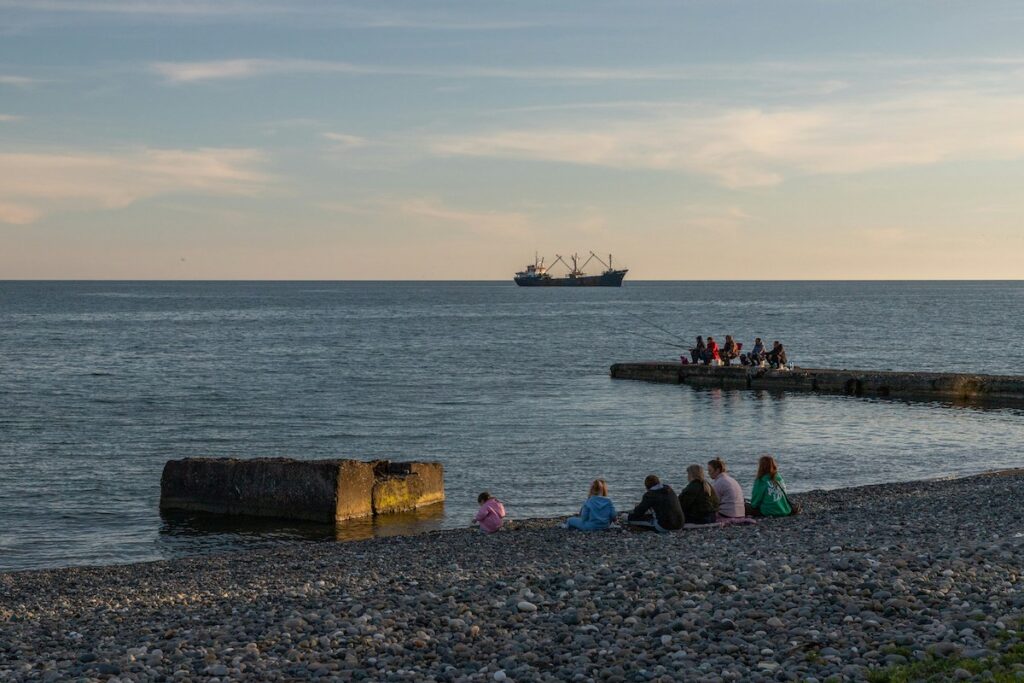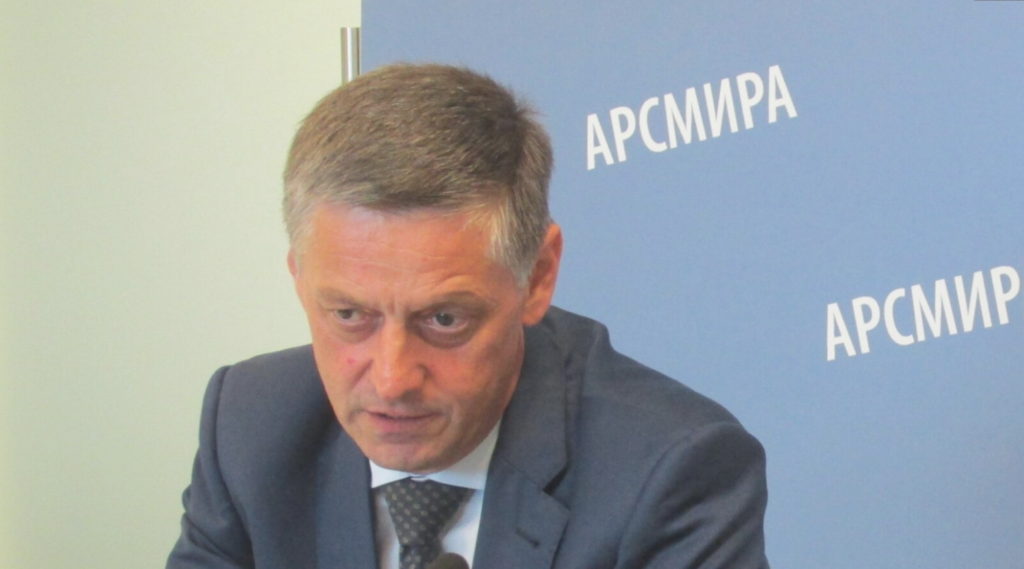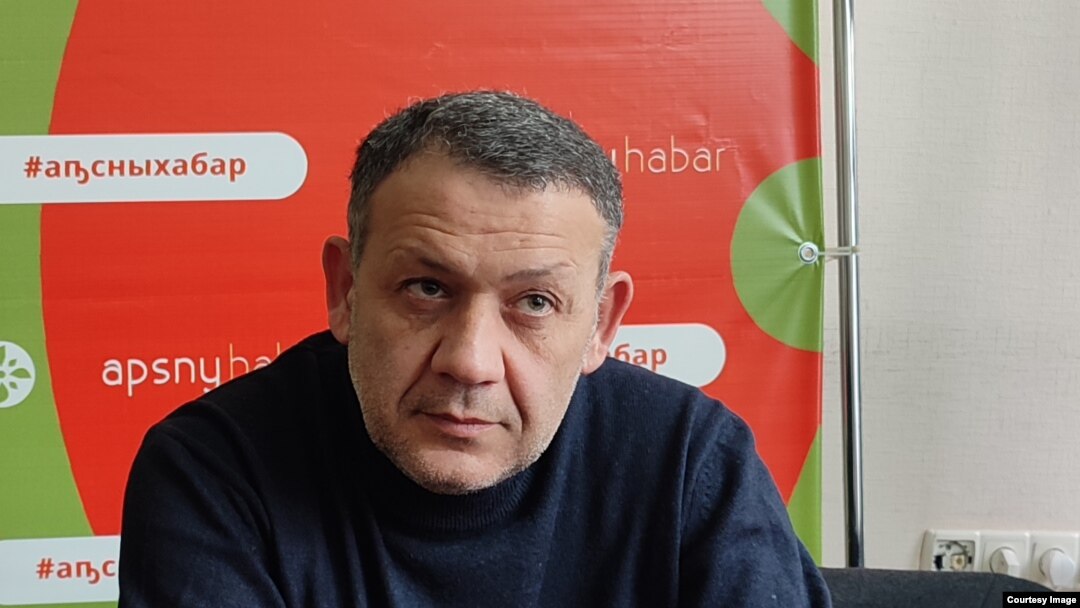
Russian influence in Abkhazia
Esma and Otar run a small guesthouse with five rooms, a sauna, and a relaxation area. They built all of this as an addition to their own home, which is located in the private sector of the Turbaza neighborhood in the Black Sea city of Sukhumi, the capital of Abkhazia.
They posted rental ads on several websites and even hired a realtor. But this year, contrary to their expectations, they have far fewer visitors than last year.
“Judging by the number of people on the beaches, there aren’t fewer tourists, but they’re all staying in large hotels, which, due to their large room capacity, can afford to lower the price per night,” says Esma.
Abkhazia is a small republic (population 250,000) on the Black Sea coast that broke away from Georgia during the armed conflict in the early 1990s. Its independence has been recognized by five UN member states: Russia, Venezuela, Nicaragua, Nauru, and Syria. The rest of the world still considers it part of Georgia, while Georgia regards Abkhazia as a territory occupied by Russia.
Much of Abkhazia’s territory lies along the Black Sea coast. During Soviet times, it was known as the “Soviet Riviera.”
Today, Abkhazia is a poor republic, largely surviving on Russian economic aid and tourism, which is why even the slightest changes in the tourism sector are met with concern.
In Abkhazia, there are complaints that large hotels are already undercutting prices in the country’s tourism sector. However, an even more troubling prospect for small hotels is on the horizon, say their owners—the construction and sale of apartments to non-citizens of Abkhazia.
Abkhazian president Aslan Bzhania continues to actively push legislative initiatives that offer incentives to large foreign investors and allow the construction of apartments that can be purchased by foreign nationals.
The draft law “On Regulating the Legal Status of Aparthotels and Apartments” was developed by the president’s administration. However, after heavy criticism from the public, the bill was sent back for revisions and reintroduced under the title “On Measures to Improve the Socio-Economic Development of Eastern Abkhazia.”
The bill proposes the construction of multi-apartment complexes in the Ochamchira, Tkvarcheli, and Gali districts, and grants permission for the construction of 10,000 apartments.
According to president Aslan Bzhania, the project aims to revitalize depressed areas (regions that do not border the sea and have largely been abandoned since the armed conflict in the 1990s). However, the opposition is convinced that all 10,000 apartments will be built along the coastline, not in the war-torn inland areas.
Few people defend the government’s initiative. The main fear of the Abkhazians is losing their right to their own land.
Abkhazia depends heavily on Russia for security, as well as military and economic matters. Foreign citizens who conduct business in Abkhazia, like the tourists, are 90 percent Russian citizens.
For Abkhazia, Russia, which was the first to recognize the republic’s independence, is a major geopolitical ally and partner. A Russian military base is stationed in Abkhazia.
However, there is a constant concern within the republic about whether Abkhazia might lose its independence due to its close ties with Russia.
The Abkhaz opposition is worried that Russian investments in airports, the republic’s railway network, and overall capital influx from Russia create a form of dependence on Russia.
This is why the new legislative initiative has sparked outrage, including large-scale street protests. The draft law was withdrawn, but there are fears that this may only be temporary.
If the law is passed, it would mean that Russians could have unrestricted opportunities to purchase and rent out apartments, creating competition for local residents, who are mostly poor. Most Abkhazians cannot afford mortgages or loans to buy property.
“It took me 15 years to add five rooms to my house. Every year, I saved money from my main income, cutting back on many things for my three sons and economizing on everything to ensure their well-being and my retirement with that income. And now our authorities want to allow Russians to build huge complexes here and then rent these apartments to each other. Muscovites with millions or workers and even pensioners from northern Russia, with salaries and pensions in the hundreds of thousands, will come here and set up passive income. It turns out that I and others like me, who built our modest mini-hotels with blood and sweat, will just be left out,” says Otar.
Currently, only holders of Abkhazian passports can buy apartments or houses in Abkhazia. Non-residents can only purchase commercial real estate. This means that the same house could be purchased, but it must be registered under a joint Abkhaz-Russian enterprise. If the enterprise disbands or goes bankrupt, the property rights also cease.
The Abkhazian authorities cannot abolish this constitutional law, so they are looking for ways to circumvent it. One method is through the construction and sale of apartments.
This is not the first attempt to liberalize the Abkhaz real estate market under various pretexts. All presidents, except the first, Vladislav Ardzinba, who initiated the ban on selling property to foreigners, have at some point announced intentions to do so. The main argument has been the need to bring this sector of the economy out of the shadows.
It is well-known that foreigners buy property in Abkhazia using various illegal schemes, usually through proxy individuals who hold Abkhazian citizenship.
However, in Abkhazia, they believe that something greater is at stake.
According to lawyer Said Gezerdaa, legalizing apartment construction and allowing foreigners to purchase them would have destructive consequences as it would undermine the foundations of Abkhazia as a state.
“This law is a form of political revisionism. It implies a revision of the foundations on which our state is based. It is not for nothing that our legislation prohibits the sale of housing or land to foreigners. All of this is aimed at preserving us as an ethnic group,” says Gezerdaa.
On the other hand, the construction process is underway and needs to be regulated somehow, says Kirill Bazilevsky, a businessman working in Abkhazia in various areas—from registering individual entrepreneurs to facilitating real estate purchases for foreign citizens.
In his view, the construction, registration, and sale of real estate indeed need to be regulated. However, it’s essential to first address all the details and then enact additional laws necessary for construction and, even more so, for the sale of apartments, houses, offices, and other properties.
“Firstly, a cadastral registry is needed; without it, you simply don’t know what assets you have. Secondly, a housing code is required; without it, you don’t have the rules of the game—such as how and to whom you will allocate social housing, what fees you will charge for utilities, what citizens pay versus what foreign property owners pay, and so on,” Bazilevsky believes.
Another argument presented by president Aslan Bzhania in favor of passing a law to allow foreign companies to build and sell property to foreign citizens is the improvement of Abkhazia’s investment climate.
However, according to lawyers, the investment climate needs to be improved before such a law is passed.
There are already precedents in Abkhazia where businesses were attracted by the promise of future legal provisions related to a potential law. Entrepreneurs were given verbal assurances that if they started construction, the necessary legal acts would follow. In reality, they were sold empty promises.
In one of the most popular tourist areas of Sukhumi, Sinop, a concrete monstrosity with protruding rebar stands a hundred meters from the beach. Construction began in 2012 with promises of a grand residential complex featuring a fitness center, a swimming pool, and a cinema. Residents were promised autonomous utilities and infrastructure—such as their own water supply, sewage system, new electrical cables, and more.
The construction was supposed to be completed by 2016. The first floor of the complex was built in 2013, but that’s where progress stalled.
“Who is all this being built for?” journalists asked at the time, suggesting that elite housing might be beyond the reach of most Abkhazians.
A representative of the developer replied, “For Russians who want to move to warmer climes.” When questioned about the ban on selling apartments to foreigners in Abkhazia, the businessman responded that the ban would likely be lifted by the time the complex was completed.
Twelve years have passed since then, yet the issue of buying and selling property to foreign citizens in Abkhazia remains unresolved.
Currently, the draft law allowing foreign construction and subsequent sale of apartments has been removed from consideration in the Abkhazian parliament. However, civil society is calling for a moratorium on any possibility of selling property to foreign citizens, as they see this as a threat to both the economy and demographics of Abkhazia.
The article is published as part of the “Spheres of Influence Uncovered” project, carried out by n-ost.


